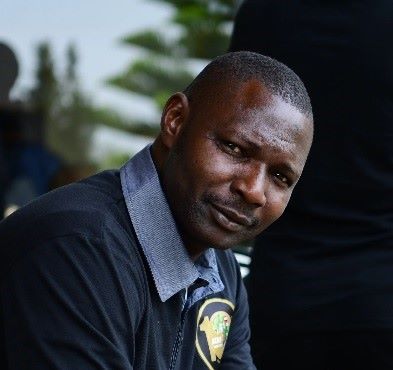In Liberia’s 2023 Political Campaigns
PHOTO: The Author
By Danicius Kaihenneh Sengbeh
In the run-up to his departure on July 13, 2023, concluding his pre-election engagement mission in Liberia, former Nigerian President Goodluck Jonathan delivered a pertinent message that resonates deeply with Liberi’s political actors. In the message, he urged them to heed his advice and integrate it into the core of their engagement throughout the ongoing electoral processes. Jonathan’s words echo as he warned, “I caution Liberians and politicians to embrace issue-based campaigning; abusive language and insults have no place in our [African] society and should have no place in our elections.”
This noteworthy statement came well in advance of the official commencement of political campaigns for the upcoming October 10 polls. This marks the country’s 4th postwar democratic presidential election after a 14-year back-to-back bloody and devastating civil war ended in 2003.
While reports abound that campaign activities have been underway for a considerable time, Jonathan’s message was not solely intended for active political stakeholders—political parties, candidates, the national election commission, and the government. Instead, it was directed at every facet of Liberian society that bears both direct and indirect roles in the electoral process—the media being no speck of exception that must pay heed.
As a journalist by professional calling who holds the perspective of a media and communication lecturer, I am compelled to posit that Jonathan’s call for stakeholders to “embrace issue-based campaigning” extends to those responsible for relaying these events to the broader populace and the world—the media. It beckons the media to prioritize substance over rhetoric in their coverage of our ongoing election campaigns.
In the lead-up to the October 10 polls, the pivotal role played by media outlets in shaping public discourse and enabling informed decision-making cannot be overstated. Journalists, in fulfilling their role as messengers, possess the authority to steer political candidates towards a more profound exploration of their platforms. This surpasses the mere amplification of insults and hollow criticism that frequently saturate the political arena. Often than not, our political arena has shifted its focus away from matters of substance to become a competition of personalities. This has resulted in the election of well-liked individuals rather than the adoption of practical and achievable policies. I possess this understanding due to my firsthand experience as a journalist who closely observed and covered two presidential elections, along with several by-elections, during my active years in the field. The dynamic must change and the media must shift it.
By shifting the spotlight towards substantial matters and proposed solutions, the media has the power to cultivate an environment that not only encourages an electorate well-versed in the issues, but also fosters meaningful political discourse within Liberia. It was with this trajectory in mind that Jonathan delivered his admonition, imploring for campaigns grounded in substance, free from insults and personal attacks. This exhortation wasn’t limited to politicians refraining from slandering opponents during speeches and campaign trails. Instead, it encompassed the media’s role in refraining from magnifying such unsavory behaviors that can potentially incite violence and undermine the tranquility of campaigns and elections. Essentially, it serves as a clarion call for the media to filter through the noise in the political marketplace and shine light on the platforms of parties and candidates.
The Liberian media, in line with Jonathan’s vision, should hold parties and candidates accountable, prodding them to address concerns related to electricity provision, rising drug abuse, low level of youth empowerment, gender parity, access to clean water, agricultural advancement, the growth of small enterprises, and infrastructure development, among other pressing issues. Those who want to be our leader must be asked to speak to these issues with a clear vision of addressing them. This approach guides the media toward fostering a well-informed citizenry, one that casts its votes with a comprehensive understanding of the candidates’ visions for Liberia’s future.
I emphasize that as Liberia navigates its electoral journey, the media must bear the weight of their role in shaping the discourse and information landscape. The guidance provided by Goodluck Jonathan calls for a media that transcends trivialities and embraces a mandate to uphold the principles of responsible journalism. The media, through it professional works, must contribute to the creation of a vibrant democratic atmosphere that is rooted in meaningful engagement and thoughtful evaluation of the political reality by the people.
As I told my students last semester while teaching “Journalism 208” (Election Reporting) at the University of Liberia, the media outlets in Liberia hold immense power. This power encompasses shaping public opinion during the legislative and presidential elections in October. By prioritizing substantive issues and candidates’ proposed solutions over empty criticism and diatribes, Liberian journalists can facilitate a more informed and constructive political discourse. It is essential for the media to embrace the role of messengers and compel candidates to explain their platforms fully, thereby empowering the electorate to make informed choices that will shape the future of Liberia.
*About The Author:
Danicius Kaihenneh Sengbeh is a journalism, media, and communication professional with over two decades of experience. He lectures Journalism at the University of Liberia. He earned an MSc in Media and Communication Studies at Lund University in Sweden, a BA in Mass Communication at the University of Liberia and Diploma in Journalism from the International School of Journalism. He’s UN Media Fellow and former Secretary General and Assistant Secretary General of the Press Union of Liberia. He also manages Communications at the Liberia Revenue Authority, contributing to domestic resource mobilization for Liberia. WhatsApp +231777586531/dakasen1978@yahoo.com

